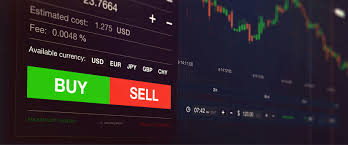
Forex Trading for Beginners: Your Comprehensive Guide
Forex trading can seem intimidating for beginners, but with the right knowledge and strategies, it becomes an accessible and potentially profitable endeavor. In this article, we will break down the essentials of forex trading, discuss key concepts, and offer practical tips to help you get started. If you’re ready to dive into the world of foreign exchange, visit forex trading beginners https://trading-bd.com/ for additional resources and insights.
What is Forex Trading?
Forex trading, also known as foreign exchange trading or currency trading, involves buying and selling currencies in the global market. The forex market is the largest financial market in the world, with a daily trading volume exceeding $6 trillion. Traders aim to profit from fluctuations in currency prices by speculating on whether a currency will strengthen or weaken against another currency.
Understanding Currency Pairs
In forex trading, currencies are traded in pairs. Each currency pair consists of a base currency and a quote currency. For example, in the currency pair EUR/USD, the euro (EUR) is the base currency, while the US dollar (USD) is the quote currency. When trading this pair, you’re speculating on the value of the euro relative to the dollar. If you believe the euro will strengthen against the dollar, you would buy the pair, and if you think it will weaken, you would sell it.
The Importance of Leverage
Leverage is a key feature of forex trading that allows traders to control larger positions than their actual investment. For instance, if a broker offers a leverage ratio of 100:1, you can control a position worth $100,000 with just $1,000 in your account. While leverage can amplify your profits, it also increases your risk. It’s essential for beginners to understand how leverage works and to use it cautiously to avoid significant losses.
Choosing a Forex Broker
Selecting the right forex broker is crucial for your trading success. Here are some factors to consider when choosing a broker:
- Regulation: Ensure that the broker is regulated by a reputable financial authority.
- Trading Platform: Look for a user-friendly trading platform that supports the features you need.
- Spreads and Commissions: Compare the costs associated with trading, including spreads and commissions.
- Customer Support: Choose a broker that offers reliable customer support to assist you with any issues.
- Educational Resources: Access to educational materials and resources can be beneficial for beginners.
Developing a Trading Strategy
A well-defined trading strategy is essential for success in forex trading. Here are some steps to help you develop your trading strategy:
- Set Your Goals: Determine your trading objectives, such as profit targets and risk tolerance.
- Choose a Trading Style: Decide whether you prefer day trading, swing trading, or long-term trading.
- Analyze the Market: Use technical and fundamental analysis to make informed trading decisions.
- Implement Risk Management: Use stop-loss orders to limit potential losses and protect your capital.
- Review and Adjust: Regularly review your trading performance and adjust your strategy as necessary.
Understanding Technical Analysis

Technical analysis involves analyzing historical price data to forecast future price movements. Here are some essential tools and indicators for technical analysis:
- Charts: Use candlestick charts to visualize price movements over time.
- Trends: Identify trends (uptrend, downtrend, or sideways) to determine the market direction.
- Indicators: Utilize trend indicators (e.g., Moving Averages) and oscillators (e.g., RSI, MACD) to gauge momentum and potential reversals.
Mastering Fundamental Analysis
Fundamental analysis focuses on underlying economic factors that can affect currency values. Here are some key elements to consider:
- Economic Indicators: Monitor economic reports such as GDP, employment data, and inflation rates.
- Central Bank Policies: Pay attention to interest rate decisions and monetary policy statements from central banks.
- Political Events: Stay informed about geopolitical developments, as they can impact currency markets.
Managing Your Risks
Risk management is a critical aspect of successful forex trading. Here are some strategies to manage your risks effectively:
- Diversification: Avoid putting all your capital into a single trade; diversify your trades across multiple currency pairs.
- Stop-Loss Orders: Always use stop-loss orders to limit potential losses on each trade.
- Position Sizing: Determine how much of your capital you are willing to risk on each trade and size your positions accordingly.
The Role of Psychology in Trading
Your mindset plays a significant role in your trading success. It’s important to manage your emotions and maintain discipline in your trading decisions. Here are some tips to develop a strong trading psychology:
- Stay Patient: Avoid making impulsive decisions based on fear or greed.
- Stick to Your Plan: Follow your trading strategy and avoid deviating due to market noise.
- Learn from Mistakes: Treat losses as learning opportunities and continuously strive to improve your trading skills.
Resources for Continuous Learning
The forex market is constantly evolving, and it’s essential to stay informed. Here are some resources for ongoing education:
- Books: Read books about trading strategies, technical analysis, and market psychology.
- Online Courses: Enroll in online forex trading courses to enhance your skills.
- Webinars and Seminars: Attend trading seminars and webinars to learn from experienced traders.
- Trading Communities: Join online forums or social media groups to connect with other traders and share insights.
Conclusion
Forex trading can be a rewarding venture for beginners willing to invest time and effort into learning the ins and outs of the market. By understanding key concepts, developing a solid trading strategy, and practicing effective risk management, you can navigate the forex market with confidence. Remember that continuous education and adaptability are crucial for long-term success. Start your forex trading journey today, and don’t hesitate to seek out resources to enhance your knowledge and skills.